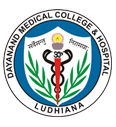YOUR RIGHTS AS HOSPITAL PATIENT :
1. The right to receive medical advice and treatment which fully meets the currently accepted standards of care and quality.
2. The right to information about what health care services is available, and what charges are involved.
3. The right to be given a clear description of your medical condition, with diagnosis, prognosis (i.e. an opinion as to the likely future caurse of any illness), and of the treatment proposed including common risks and appropriate alternatives.
4. The right to know the names of any medication to be prescribed, and its normal actions and potential side effects given your medical conditoin.
5. The right to accept or refuse any medication, investigation or treatment, and to be informed of the likely consequences of doing so.
6. The right to have a second medical opinion.
7. Right to his/her medical records.
8. The right to have your privacy, dignity and religious and cultural beliefs respected.
9. Respect for personal dignity and privacy during examination, procedures and treatment.
10. The right of access to medical information that relates to your condition and treatment.
11. The right to have information relating to your medical condition kept confidential.
12. The right to make complaint through the channels provided for this purpose by the Hospital, and to have the complaint dealt with promptly and fairly.
13. Protection from physical abuse or neglect.
14. The right to choose whether or not to take part in medical research program.








